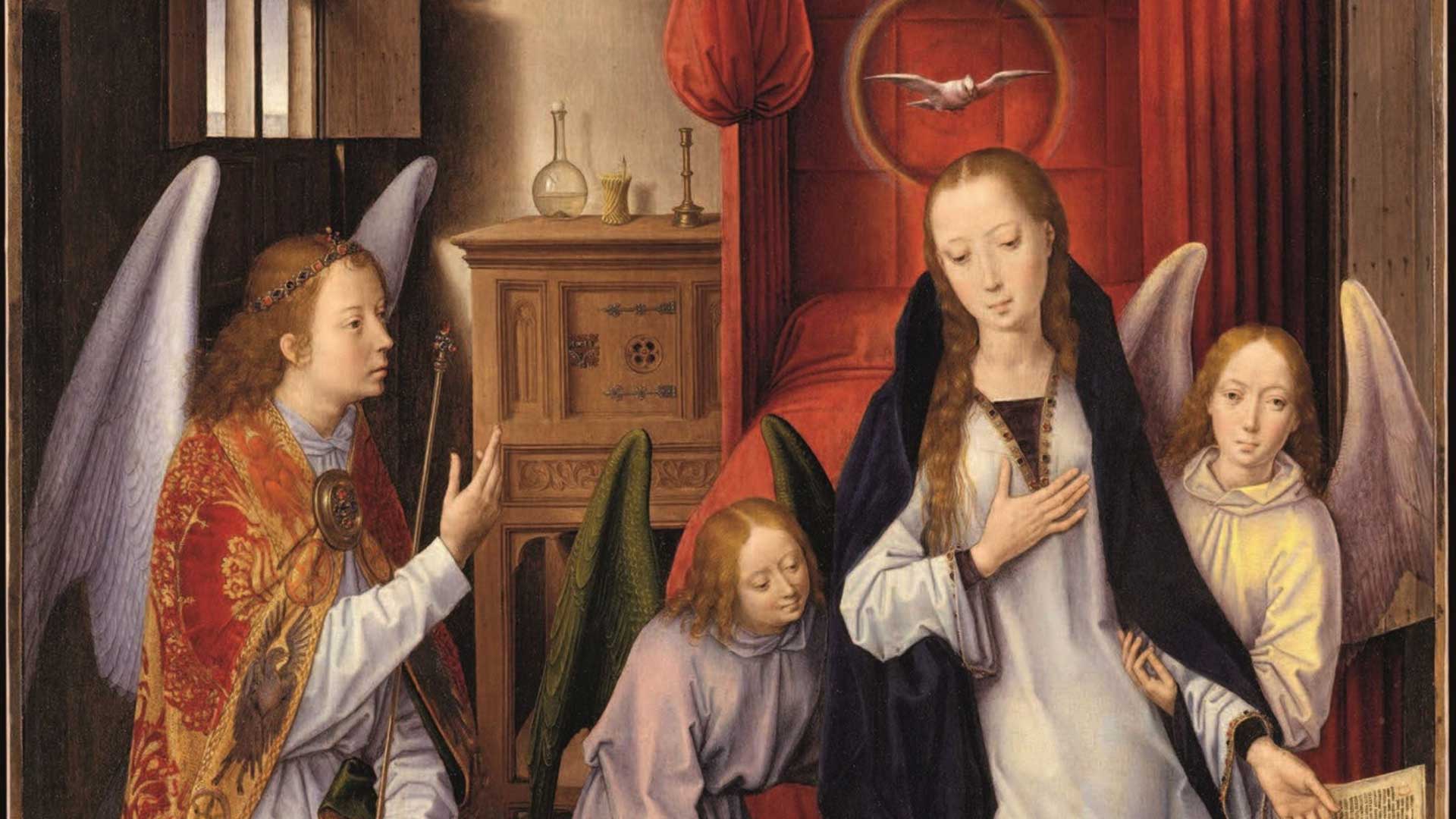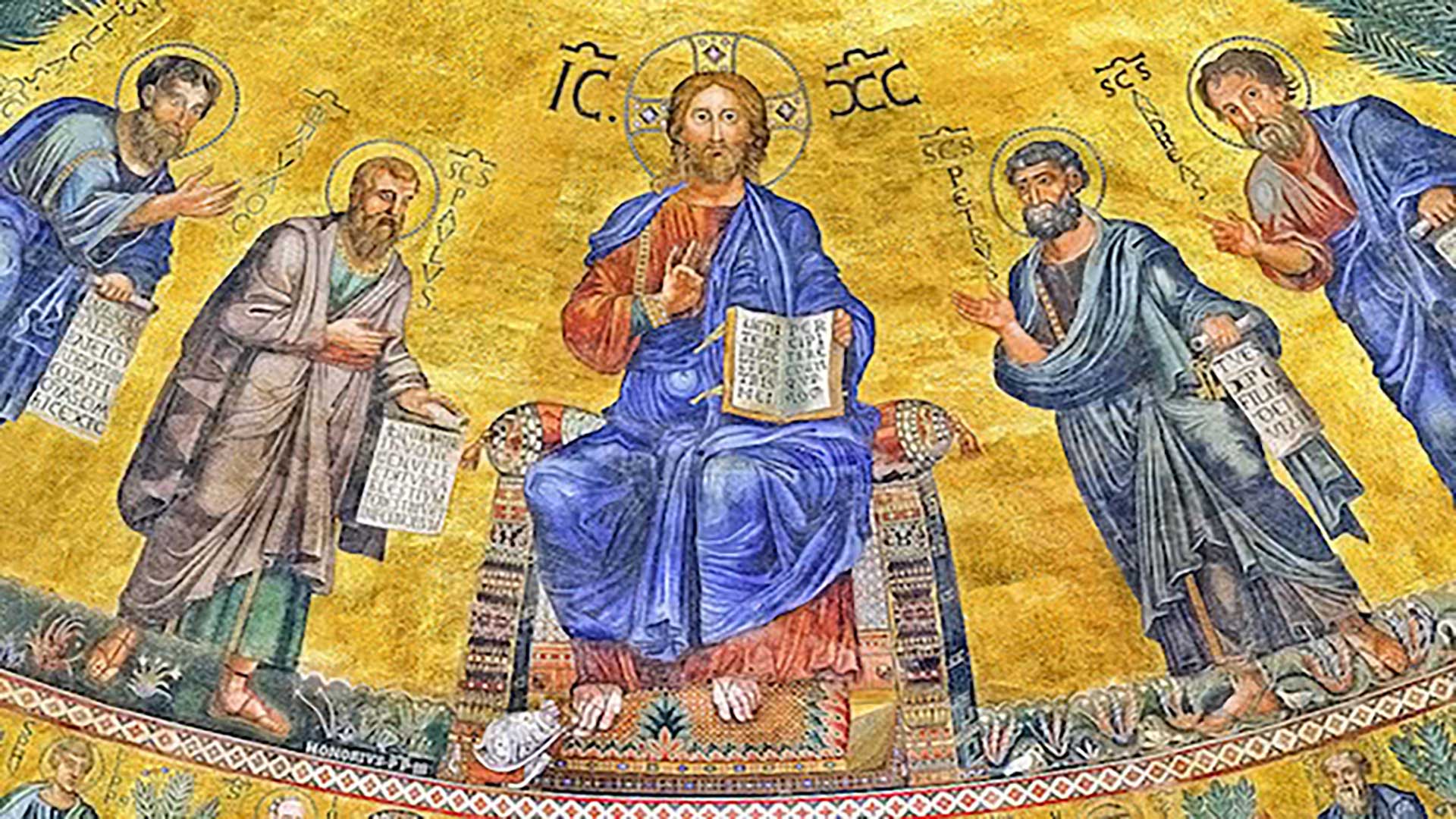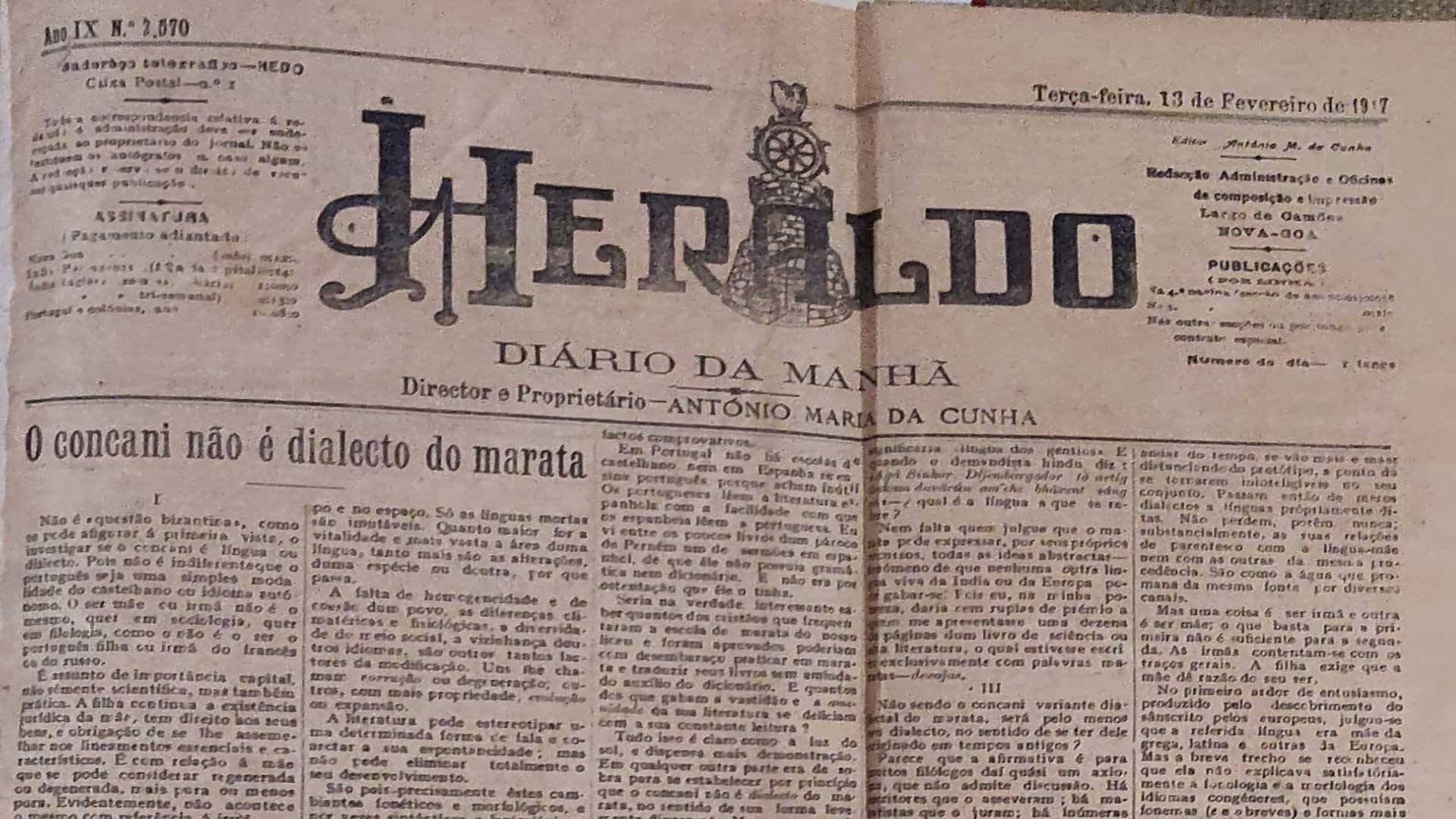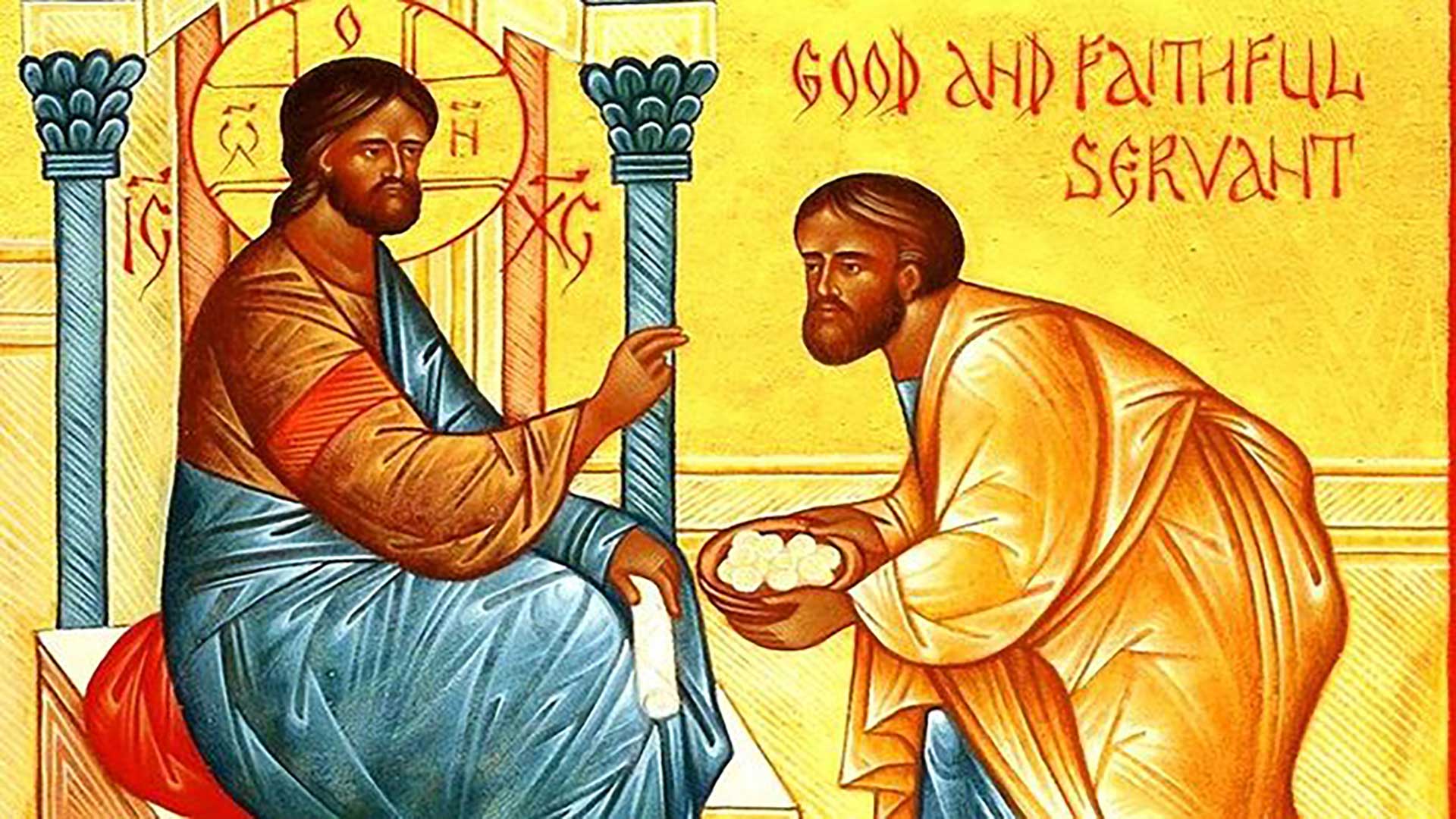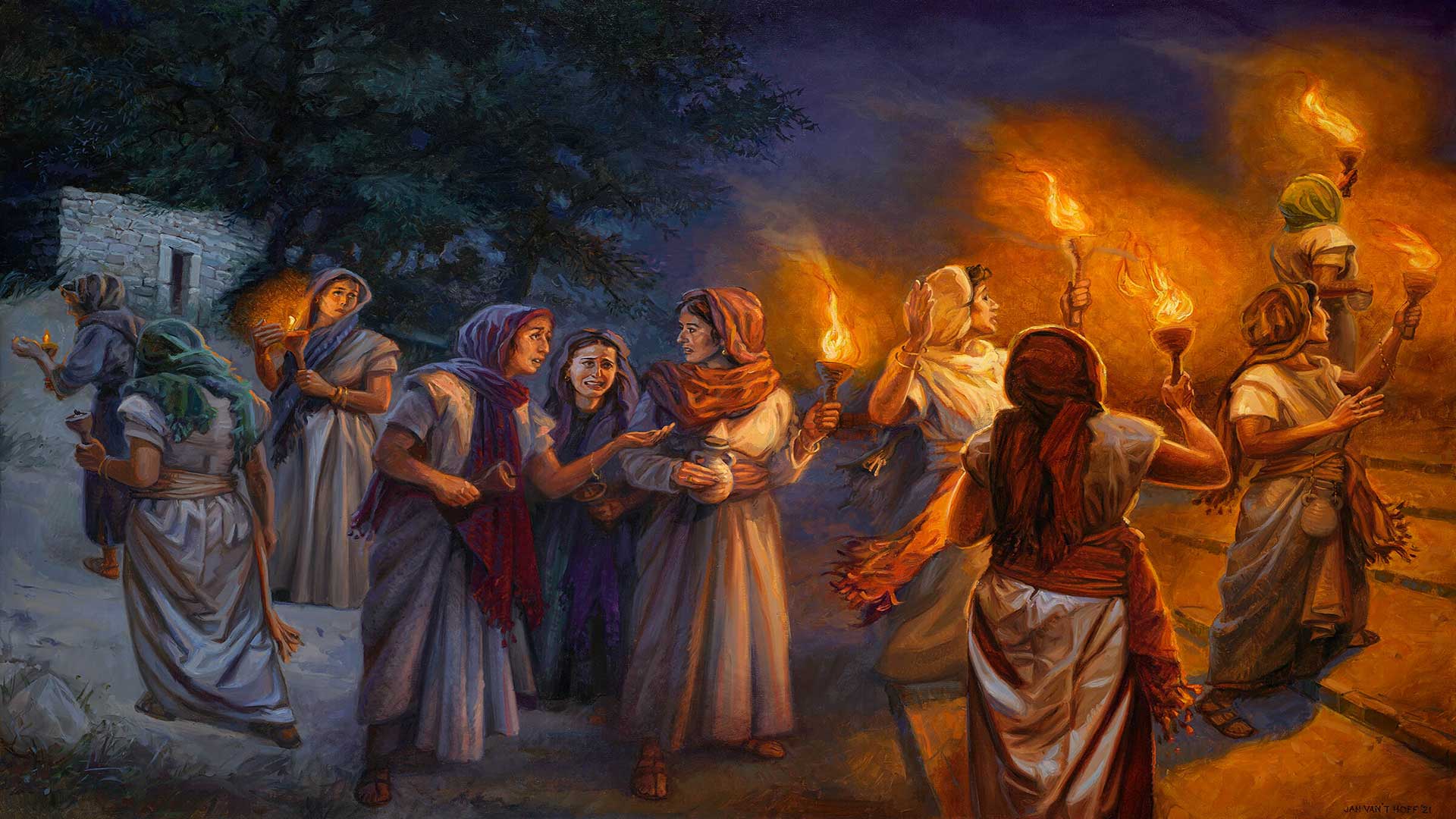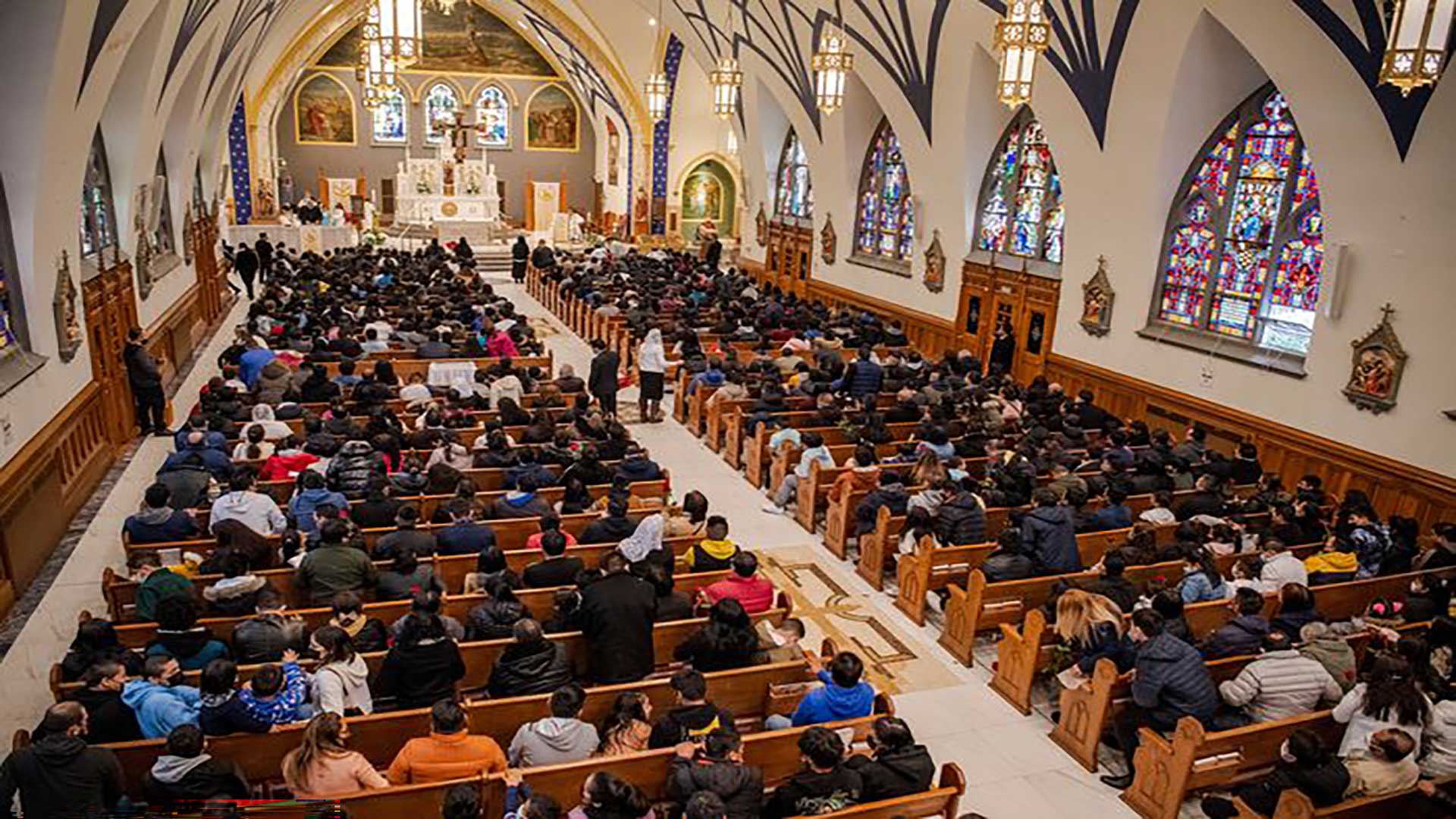Preparing the way of the Lord
December 10, 2023Mass Readings
‘Prepare the way of the Lord’ is the refrain of today’s three Readings. That is what God said to His people in the Old Testament and the Evangelist repeats in the New. And that is also what God says to all men and women of goodwill today.
The Readings are most apt, for Advent is a time to change ourselves for the better, to renew our aspirations for things from on high, to convert our hearts and minds to God and neighbour. Thus, preparing the way of the Lord always brings joy and fulfilment.
God’s message through the Prophet Isaiah in the First Reading (Is 40: 1-5, 9-11) must have greatly soothed the nerves of his enslaved lot. God promised the Jews liberation from their exile in Babylon and worked out a plan for their return to the land of their ancestors. Obviously, the people’s collaboration was a must if they were to find peace and salvation; and it is equally true today, for us who are enslaved by materialism and godlessness. It calls for renunciation of sin and a radical change of heart on our part, in anticipation of God’s forgiveness and continued love.
That is the Good News of Salvation (or Gospel). Today, St Mark (1: 1-8) points to John the Baptist as that divine messenger sent to “prepare the way of the Lord” and to “make his paths straight” – that is to say, help people adopt a course of behaviour in keeping with the Lord’s commandments. The essential condition is that we repent for our sins and confess them. To restore our relationship with our Divine Master, we have to avail ourselves of the sacraments of Penance and Holy Eucharist.

What better time to do so than now? Christmas is a reminder of that uncertain time in the future when we will see God face to face. So, Advent is a time of expectant waiting and preparation for both the commemoration of Christ’s Nativity at Christmas every year and for the return of Christ at the Second Coming. When will this be? It could happen at any time: it could take a second or an eternity.
Meanwhile, let’s realise that Jesus comes into our hearts every single day; so, every single day is a preparation for that moment in our personal and collective lives when the Lord will appear to us in person.
St Peter in the Second Reading (2 Pet 3: 8-14) reminds us that “with the Lord one day is as a thousand years, and a thousand years as one day.” We may think that He is slow to come, but He is not; what we perceive as a delay could well be an extended time for preparation, a bonus to be grateful for. Are we going to make use of it effectively? The Lord does not wish that any of His children should perish but that all should reach repentance.
What matters most is a quiet but earnest spiritual preparation; hence, the refrain: “Prepare the way of the Lord”. Our Lord does not expect us to merely prepare a way for Him, by means of a loud and pompous celebration. It is, unmistakably, a straight and narrow path of patience and prayer.
Watchful and Happy
To be watchful and happy was the priest’s clarion call at a death anniversary Mass I attended yesterday, the last day of the liturgical year. The inspired celebrant referred to the apocalyptic times, as suggested by the day’s Readings, and then spoke with unction about the dispositions proper to the new liturgical season beginning today: Advent. It is a time to be happy, but as in life in general, we ought not to lower our guard, for only watchfulness can ensure true happiness, he said.
Today’s Gospel text (Mk 13: 33-37) echoes that message as Our Lord exhorts us: “Take heed, watch and pray: for you do not know when the time will come.” This is the final part of Jesus’ eschatological discourse, occasioned by a disciple’s praise for the built heritage of Jerusalem. “Look, teacher, what stones and what buildings!” And Jesus said to him, “Do you see these great buildings? There will not be one stone left upon another that will not be thrown down.” Well, what words and what foretelling! In 70 A.D., the Romans destroyed the city and the Temple.
As an upshot of the parables heard on the last three Sundays, “when the time will come” does not refer as much to the forthcoming Christmas Day as it does to the Parousia or Second Coming. Jesus compares the situation to a man on a journey: when he returns, unannounced, wouldn’t he like to find the doorkeeper on guard rather than asleep? He could arrive in the evening, at midnight, cockcrow or in the morning – the four parts or vigils of the night – 18-21 hours; 21-24 hours; 0-3 hours; 3-6 hours, respectively. Likewise, Our Lord will come at a time least expected of Him; so, “Watch!”
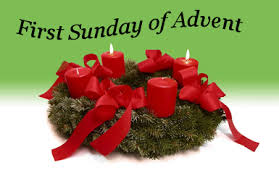
The first Sunday of Advent sees the return of the season’s best-known Prophet: Isaiah. He is no sentimental softie. In the First Reading (Is 63: 16b-17; 64, 1.3b-8), pointing to the Lord’s kindness as a cause for humans to go astray and not fear Him, he urges the Lord's early coming: “O that thou wouldst rend the heavens and come down, that the mountains might quake at thy presence.” He compliments those who “wait for Him” and implores Him to not leave people to their iniquities, for “thou art our Father; we are the clay, and thou art the potter; we are all the work of thy hand.”
Truly, who are we without the Divine Potter? Only dust. Yet, how quickly we forget Him who has made us! We act with arrogance and offend Him night and day, whereas those who fear the Lord beseech Him: “God of Hosts, turn again, we implore; look down from heaven and see. Visit this vine and protect it, the vine your right hand has planted.” (Ps. 79: 15-16)
Finally, St Paul (1 Cor 1: 3-9) thanks God for the spiritual gifts with which He has enriched his mission. However, we know that graces do not come at once; like yeast, they are meant to grow till the glorious revelation of Our Lord Jesus Christ. God who has called us into the fellowship of His Son will sustain us guiltless till the “Day of Our Lord”. And how is the Apostle so sure that this will happen? He first visited his people two millennia ago, just as the prophets had announced, and will keep his promise to visit us again!
Everything happens in His time; all we need to do is keep watch. Simple shepherds once did so in Bethlehem and became harbingers of the Good News. While watchfulness is a laudable Christian attitude, Parousia, however, must never become a cause for fear, anxiety or any morbid curiosity.
Likewise, let us not make externals the focus of Christmas; instead, let us establish our hearts in holiness at the coming of Christ (1 Thes 3: 13). It is not for nothing that, before His departure, Our Lord and Master spoke of vigilance. In vigilance and patient persistence lies the secret of eternal bliss.
Glorious end, splendorous beginning
November 26, 2023Mass Readings
Today is the thirty-fourth Sunday of Ordinary Time and last of the liturgical year. Whereas ‘thirty-four’ is just another number, ‘last’ might arouse emotions. Hence, after experiencing a year of highs and lows, or a spectrum of emotions produced by the liturgical seasons, it is time we declared Our Lord Jesus Christ as the king of our minds and hearts. Which could be another way of looking at Christ as Universal King.
To many today it may feel outdated and pointless to think in terms of kingship. That is because those with vested interests have led us to question that old and deep-rooted tradition. It is undeniable, however, that kingship goes back to the Old Testament where God was keen on a godly leader to shepherd His people. The choice of David who was a shepherd in the literal sense brought alive the concept of a later shepherd-king who would be the Messiah. But particularly in our day and age, the idea is not to be confined to the spiritual realm but rather to be contrasted with phoney leadership in the secular realm.
From the First Reading (Ezek 34: 11-12, 15-17) it is amply clear that a true king ought not to be oppressive or tyrannical (as the kings of Israel indeed were, in the days about which Ezekiel writes); on the contrary, a good king ought to be sincerely interested in the welfare of his people, and like a shepherd, zealously guard his flock, of which Psalm 23 is the epitome. The Lord says that He Himself will seek out and rescue His scattered sheep. He will “feed them in justice” and, very importantly, “judge between sheep and sheep, rams and he-goats”.
That feeds into the Gospel idea of the Last Judgement as depicted in the last of the trilogy of parables (Mt 25: 31-46) that Our Lord related before He walked up to Calvary. The Lord announces that “before Him will be gathered all the nations, and He will separate them one from another as a shepherd separates the sheep from the goats, and He will place the sheep at His right hand, but the goats at the left.”
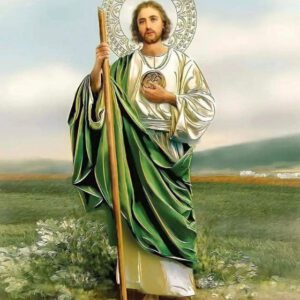
As in the parables read last two Sundays, those who by their acts of love (corporal works of mercy) towards the little ones please the Lord will be rewarded: “inherit the kingdom prepared for you from the foundation of the world”. On the other hand, judging between sheep and sheep, those who have not proved worthy of God will be cursed “into the eternal fire prepared for the devil”. Strong words that we cannot afford to pass over.
In short, if the unrighteous will go away into eternal punishment and the righteous into eternal life, it befits us to consider whether we are ready for the day of reckoning – whose time we do not know! Are we prepared to set our eyes on Heaven and sacrifice some things on earth? Now is the time and the moment to decide. This Advent, only a profound spiritual preparation will qualify us to receive the Lord God of Hosts at Christmas.
How well the Second Reading (1 Cor 15: 20-26, 28) rewinds to the time when Adam, who brought death to humankind, and races back to when Jesus the New Adam brought us new life! St Paul was talking about the resurrection of the dead, about all that stands depleted and will be vivified by the Son of God. It is not physical death alone but the death of our consciences that is at stake and which only the Lord can heal.
Finally, behold the history of the future: Jesus, after destroying every rule and every authority and power, and having reigned until He put all His enemies under his feet, He will destroy death and deliver the kingdom to God the Father. And then, “when all things are subjected to Him, then the Son Himself will also be subjected to Him who put all things under Him, that God may be everything to everyone”.
Today we are given a foretaste of a glorious end that will herald a splendorous new beginning, through Jesus Christ Our Lord and Universal King.
Konkani is not a dialect of Marathi - 3
Part 3 of "O concani não é dialecto do marata", by Mgr. Sebastião Rodolfo Dalgado, in Heraldo, Pangim, Goa, Year IX, No. 2570, 13 February 1917, p. 1)
III
Since Konkani is not a dialectal variant of Marathi, would it at least be a dialect, in the sense that it originated from the Marathi in ancient times?
It seems that for expert philologists there, the assertion is almost an axiom, which admits of no discussion. There are writers who declare it; there are Marathists who swear by it; there are many obvious analogies between one speech and the other. What more can one want?
But there are also many analogies between Gujarati and Marathi. Therefore, one is a dialect of the other! There are many points of contact between Portuguese and Italian. Therefore, one has derived from the other! There is almost no Arabic word that is not used or cannot be used in Persian. Therefore, both languages belong to the same family, Semitic or Aryan! Konkani also seems to have similarities with Gujarati, Hindi, Sindhi, Bengali, Oriya, Punjabi, Kashmiri. Therefore, it is a daughter of them all! I do not know if it was for this reason that someone has said that she is almost a “daughter of Marathi”, or if because she has not yet fully emerged from her mother's womb.
It would in fact be surprising if there were no similarities between the sister languages; they would not be from the same family. But partial similarity does not necessarily explain derivation or affiliation. Much more is needed for that. English has many French and Latin words and phrases, and nobody till date has thought of including it among the Romance languages. A language that spreads over a vast area, by absorption, colonization or conquest, naturally and unwittingly produces regional changes that can be easily understood. With the passage of time, they move away further and further from the prototype, to the point of becoming unintelligible as a whole. They then change from mere dialects to languages in their own right. However, they never substantially lose their kinship with the mother language or with others of the same origin. They are like water flowing from the same source by different channels.
But it is one thing to be a sister and another to be a mother; what is good enough for the former is not good enough for the latter. Sisters are content with the broad strokes; a daughter demands that the mother give a reason for her existence.
In the first ardour of enthusiasm, produced by the discovery of Sanskrit by the Europeans, it was believed that the said language was the mother of Greek, Latin and others languages of Europe. But soon it was found that it did not satisfactorily explain the phonology and morphology of like languages, which had phonemes (short e and o) and more primitive forms. It was then acknowledged that only the elder sister had the key to the resolution of various linguistic problems. And it was concluded that there might be another language without historical monuments from which Sanskrit, Iranian, Greek, Latin, Celtic, etc. have derived. The existence of the Indo-European or Proto-Aryan is now an established and inescapable point, by the principle of causality.
I have no doubt that this is Greek to several of my enlightened countrymen. A Sanskrit scholar asked me how one might explain the opposition by the Hindus of Goa (whose progress has of late been praised) to the introduction of the Sanskrit chair at the Goa Lyceum, whereas they should have been more committed! I had to contend with regret that the real reason would be the fallacy or patravôll of the Marathi chair, and the opponents some kind of young Turks who try to jump, as they say in Konkani, over the herb plants: tsannyânchím jhâdám uddunk. For I have always regarded the Hindus as staid people, and I would not ascribe to them such foolishness.
(Published in Revista da Casa de Goa, Series II, No. 25, Nov-Dec 2023, pp. ___)
Good and Faithful Servants
November 19, 2023Mass Readings
Still on the theme of wisdom, on this penultimate Sunday of the liturgical year, the Church urges us to plough through life with faith and hope in the Lord. Goodness and faithfulness pay dividends.
The First Reading (Prov. 31: 10-13, 19-20, 30-31) sings a paean to the feminine gender. It provides a model of a worthy wife far more precious than jewels! She does all she can for her husband and family. Her worth goes beyond mere beauty and charm, for she is strong, skilful, hardworking, trustworthy, and above all, charitable and God-fearing. A wife, mother and homemaker like that is wisdom personified. She deserves to receive her hard-earned reward and to be praised in public for what she has accomplished.
In a male dominated Israel, women must have welcomed those verses as a breath of fresh air. In our day and age, however, they may be dismissed as a load of hot air. But that is a flawed reading, for the same degree of virtue is expected of man as well. And perhaps the best earthly reward a woman can hope for is a like-minded husband, whose responsibilities the Evangelists and St Paul have carefully delineated. Man and woman thus qualify to work hand in hand to instal the values of the kingdom of heaven here on earth.
Even though Psalm 128: 1-5 dwells upon the blessings in store for the God-fearing, we hasten to point out that fear of the Lord is not a negative feeling but one of reverential respect. It is a life-giving, not a paralysing, awe, which helps us stay on track and not depart from the Lord’s precepts. Such a benevolent fear is a far cry from the useless servant’s neurotic fear, as seen from the Parable of the Talents that makes up today’s Gospel text.
In the said Parable (Mt 25: 14-30), a man going on a journey for an unspecified period of time (symbolic of Jesus, whose Second Coming we await) entrusts his talents to his three servants. Interestingly, a talent was then a denomination of weight (of any precious metal), not a natural aptitude or skill, as we know it now.[1] And how did the threesome look after the traveller’s estate? The two to whom he had assigned five and two talents, respectively, traded intelligently and doubled their number, whereas the servant to whom only one had been delegated miserably failed to even make a start…. Truly, from those who have received much, much is asked for in return, both on earth and in Heaven: a good reason not to quibble about uneven distribution!

When we look at those talents as material wealth, we at once understand that it is natural that we grow them. But then, when we regard them as abilities, be they physical, social or intellectual, with which God has endowed His children: how many cultivate them, let alone be grateful for them? How many are used for the common or greater good, be it in church or civil society, to help usher in the kingdom of God?
To judge whether or not some activity is worthwhile, the Gospel values should be our benchmark. Such an attitude would emphasise sharply the precepts of God’s kingdom. It would also embolden us to share our light and not hide it under a bushel.... Are we, then, good stewards of the spiritual software that God has provided us with? Do we value the Sacraments, cherish the Word of God, follow the Commandments? In other words, are we committed Christians?
We can’t afford to take it easy. Hence, in the Second Reading (1 Thess 5: 1-6), St Paul stresses the importance of vigilance, stating that “the day of the Lord will come like a thief in the night.” The Day of the Lord is a concept that comes down from the prophetic and apocalyptic visions of the Old Testament. The Apostle proceeds in opposites, letting us see that the more we think there is “peace and security”, the more we are surprised by disasters. Which makes of Jesus our one and only spiritual insurance. So, even if a situation looks bleak, the children of the light will see the thief coming, as long as they remain “alert and sober”.
Eternal vigilance is indeed the price of liberty. When there is no vigilance, individuals, families and associations, press, education and the war against forces of evil stand compromised and the Kingdom jeopardised. And considering that the roll will be called up at the Final Judgement (cf. next Sunday’s Gospel at Mt 25: 31-46), happy are those who, like Emperor Dom Pedro II of Brazil, can say:
E entre visões de paz, de luz, de glória,
sereno aguardarei no meu jazigo
a justiça de Deus na voz da história!
(And amidst visions of peace, of light and of glory,
Serenely will I await in my tomb
the justice of God in the voice of history!)
-o-o-o-o-o-o-o-o-
Banner: https://orthochristian.com/106593.html
[1] For the etymology of the word ‘talent’, see https://www.oed.com/dictionary/talent_n?tl=true
Goencheo Mhonn'neo - V | Adágios Goeses - V
November 15, 2023Goan Literature,Sayings and Proverbs
Segue uma quinta lista de adágios,[1] extraídos do livro Enfiada de Anexins Goeses, obra bilíngue (concani-português), de Roque Bernardo Barreto Miranda (1872-1935)[2].
Concani | Tradução literal | * Tradução livre
Jiuak suk, pottak duk. | Jivak sukh, pottak dukh.
Para a vida, quietação.
Para a barriga, inanição.
* Quem preguiça e não trabalha,
não ganha p’ra a vitualha.
Fonddachy maty fonddak. | Fonddachi mati fonddak.
A terra de uma cova
não chega para mais,
senão à mesma cova.
* Querer alguém aumentar
os bens ou a fruição,
além da capacidade,
é gastar o esforço em vão.
Borém zalyar noureá-ôclêchém, vaitt zalyar, raibareachém. | Borem zalear novrea-voklechem, vaitt zalear, raibareachem.
Se o consórcio for feliz,
deve-se o êxito fagueiro
aos noivos; sendo o contrário,
a culpa é do medianeiro.
Sambhar cabar zalyar, sacaçó vás vhossó na. | Sambar kabar zalear, sakacho vas voch’na.
Embora esteja esvasiado
o saco de condimentos,
ele há-de exalar o cheiro
de temperos e pimentos.
* Um homem embora esteja
hoje pobre, desditoso,
não perde o aprumo que teve
quando rico ou venturoso.
Vaitt chintit tém yetá ghârá, vhossó na xezará. | Vaitt chintit tem ieta ghora, vochona xez’ra.
Quem quer mal a outrem, ele próprio o alcança,
E não sofre nunca a vizinhança.
* O mal que se quere à gente,
sofre-o o próprio malquerente.
------
[1] Cf. quarta lista, Revista da Casa de Goa, Série II, No. 24, setembro-outubro de 2023, pp. 45-46
[2] Roque Bernardo Barreto Miranda, Enfiada de Anexins Goeses, dos mais correntes (Goa: Imprensa Nacional, 1931), com acrescentamento dos adágios na grafia moderna, pelo nosso editor associado Óscar de Noronha.
(Publicado na Revista da Casa de Goa, Serie II, No. 25, nov-dez 2023, pp. __)
With Joy and Anticipation
November 12, 2023Mass Readings
Several themes emerge from the Readings of the thirty-second and third last Sunday of the liturgical year: commitment, faithfulness, perseverance, readiness. Since they are all hallmarks of the wise, Wisdom may well be considered the overriding idea.
The First Reading (Wis 6: 12-16) is about divine wisdom. The anonymous author of the deuterocanonical Book of the same name effectively resolves the question of the happiness of the just and the misery of the unjust. Placed as he was in an ambience that prized a materialistic lifestyle, he counters it with a rational basis for a life of faith.
The said author was possibly a Jew based in Alexandria, an Egyptian city that was in the grip of worldly-wise Hellenism. To the Greeks, wisdom was only a means to divine knowledge and contemplation, whereas to our author wisdom was indeed a way of life. He goes on to identify wisdom with the Spirit of God. This is one of the many aspects of our religion that makes it hugely different from the idolatrous ones.
Wisdom is thus a form of divine revelation; it is God acting in the history of the world created by His wisdom. Wisdom has prefigured the love of God and culminated in Jesus Christ, who is therefore called the “Wisdom of God” (cf. 1 Cor 1: 24, 30). It is this Wisdom Incarnate who exhorts us in the Parable of the Ten Virgins: “Watch, therefore, for you know neither the day nor the hour.”
These words wrap up today’s Matthew-exclusive Gospel story (Mt 25: 1-13) of a sundown wedding ceremony. Traditionally, a bridegroom, his family and friends would walk to the bride’s home for some rites. Thereafter, the bride would walk back with them, in a nuptial procession wending through the streets, to the groom’s home. The attendees carried their own torches, and on arrival, bridesmaids welcomed and assisted the bride.
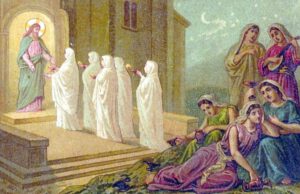
Interestingly, the parable makes no mention of the bride: maybe because the story begins with the groom’s return journey. Besides, the focus is not on the bride but on the preparedness of the bridesmaids. And at what time the bridal party would arrive at the groom’s house was anybody’s guess; so, it was necessary for the bridesmaids to be in readiness. Sadly, five of them were not; the five haves refused to share, so the have-nots scurried for oil at the last minute. They were locked out and disowned by the groom.
When, where and why did Jesus tell this parable? It is a continuation of a dialogue Jesus was engaged in with his disciples (cf. Mt 24) regarding the end times. He wanted them to know that the ten (number of completion) virgins (all Christians, and symbolising purity) who have the oil (grace) when the groom (Saviour) comes again will be invited to the wedding feast (Kingdom of Heaven). Of course, Jesus is the Bridegroom, and His Bride, the Church (a variation of God as Husband of Israel, in the Old Testament).
As for us in real time, what should we find ourselves doing as and when the world ends? Nothing special; we should be going about our daily life normally. And what about those who have gone before us? In the Second Reading (1 Thes 13-18), St Paul states that we have no reason “to grieve as others do who have no hope.” To show that our ancestors have not died in vain, he says: “The dead in Christ will rise first; then we who are alive, who are left, shall be caught up together with them in the clouds to meet the Lord in the air; and so, we shall always be with the Lord. Therefore, comfort one another with these words.”
However, to be able to comfort one another, we ought to be one in mind and heart! Are all Christians on the same page as regards doctrine? Are the Ten Commandments cherished and practised? Do we think about Heaven, the angels and the saints as a living reality? Do we believe that we ought to know God, love and serve Him? Can we say with the Psalmist, “For you my soul is thirsting, O God, my God”? Are sin and grace for real, or inanities?
As we approach the end of yet another liturgical cycle, the Readings of the last three Sundays (12, 19 and 26 November) veer towards the nature of God’s kingdom in the end time, in Matthew 25: the parable of ten virgins (Mt 1-13), the parable of talents (Mt 14-30), and the parable of the last judgment (Mt 31-46), respectively. With this excellent runup to Advent, let us wait with joy and anticipation for the Lord’s coming.
Paean to the Portuguese
THE PORTUGUESE PRESENCE IN INDIA, by João A. de Menezes. Chennai: Notion Press, 2020. Pp 346. ISBN HB 978-1-64850-628-4. Rs 1610/-
This is not macro-history like Danvers’ or Whiteway’s, but an account of the author’s life spent in the bosom of a third culture moulded by the Portuguese presence. In five autobiographical chapters interspersed with four others on broader historical issues he speaks his mind with a forthrightness not common in our days.
Three main strands stand out: the Goan way of life (“Goanism”), including emigration; the Catholic Church in Portuguese and British India; and Goa’s démarches in post-Independent India. “Goanism”, says the author, is anchored to the 451-year-old Portuguese stint and to the age-old comunidades that since the Vedic times have engendered powerful village loyalties.
The author’s own “loyalties” are evident. Despite the author’s long years in Poona, Aden, Bombay, and travels abroad, his heart beats for Goa. There are tender descriptions of ancient institutions; villages and households; the local church and cross feasts; markets and transport systems. Menezes is proud of icons like the Patriarca das Índias Orientais, the Cathedral See, the capital city Pangim, Radio Goa of yesteryear, the Taleigão harvest festival; and he gratefully remembers Governor-General Paulo Bénard Guedes, other men (priest granduncles Canon Bruno de Menezes and Fr Hipólito de Luna included), and matters that contributed towards shaping Goa (“with the exception of the Governor-General and the Chefe do Gabinete, all the other officials of the civil services were Goans and men of integrity”, p. 45).
“Visit to Goa… for the 1952 Exposition” (of the Relics of St Francis Xavier) portrays Menezes as a young man, not only curious about the history of the former capital of the Portuguese Eastern Empire but also attentive to the political goings-on: the “problematic emergence” of the first Indian Cardinal, Valerian Gracias (and his sojourn at Panjim’s Hotel Imperial); pressures on Portuguese India; redistribution of Padroado territory in British India, and so on.
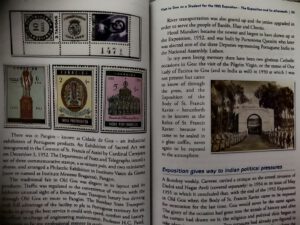
That visit hooked Menezes to his homeland. In “A Tryst with Goa”, he appreciates the cordiality from family and friends, set in a social ambience in which house doors “could remain open with no fear of intrusion” (p. 246). But “the happiest place on earth” (p. 274) was not destined to remain the same for long. The first satyagraha, which involved 100 (out of 100,000) Bombay Goans, in 1954, and none in the following year, demanding ‘liberation’ at the Goa border (p. 264); the severance of diplomatic ties between the Indian Union and Portugal; the Economic Blockade and terrorist threats, which made travel by land a nightmare, and the like, seem to account for the book’s subtitle, “Latter-day thorns amidst tranquillities”. Menezes participated in a first-of-its-kind pilgrimage to Old Goa, praying for peace, in 1956.
Menezes records Goa’s coming of age amidst those “thorns”, thanks to the induction of Transportes Aéreos da Índia Portuguesa (TAIP, whose airhostesses wore saris); upgradation of travel by land, sea, rail and air; optimising of farmland and other resources; importation of cars (Opel and Mercedes Benz as taxis, and the concept of shared taxis, p. 248) and other products; and boost to mining, with Chowgule & Co. as a concessionaire operating an iron loading facility while the rest of the port was managed by the British company that ran West of India Guaranteed Portuguese Railway (WIPR; p. 259).
In two chapters – “My Return to India from Goa” and “Travel between India and Portuguese India” – Menezes dwells on the run-up to the events of December 1961, viz. strategies to dismantle the Portuguese presence; the Goa Office at the Bombay Secretariat, among others. While the Brazilian Embassy’s service to Goans applying for Portuguese passports comes in for special praise here, the subject is dealt with extensively in “Brazil, Caretaker of Portugal’s Interests in the Indian Union – September 1, 1955 to December 31, 1974”. On the latter date, Portugal opened its Embassy in New Delhi.
Three chapters on lesser-known subjects – “The Portuguese Padroado or Patronage and the Indian State”; Indo-Portuguese Notes on Sovereignty”; and “The Referendum Rub: The Inflexibility of the Indian State to permit a Referendum” are mini-dissertations indeed. Menezes draws up a concise history of the Padroado (respected by the Peshwas) and of the Holy See-Portugal Concordat of 1940 (with text in English), and the implications for Goa. His unique contribution lies in examining the impact of Indian Independence on the Padroado, for which purpose he painstakingly translated and critiqued the India-Portugal correspondence contained in the four-volume White Paper titled Vinte Anos de Defesa do Estado Português da Índia (1947-1967), an invaluable resource for researchers.
To put together “Indo-Portuguese Notes on Sovereignty”, Menezes falls back on those diplomatic exchanges, declassified ahead of time (“an act without international precedent”) so the ageing Salazar could let the world know that he had defended the Portuguese Settlements in India with integrity (p. 131). Menezes calls the bluff of Goan political parties’ contribution to the fall of Dadrá and Nagar-Aveli (p. 171 ff) and ends the chapter with a note on “the conquest and subjugation of the Portuguese territories in India” (pp 182-3), with the text of the Indo-Portuguese Treaty of 31 December 1974 (p. 183 ff) added. The Appendix comprises a Goan, Bonifácio de Miranda’s address (apropos the Goa Case) at the UN General Assembly in 1969.
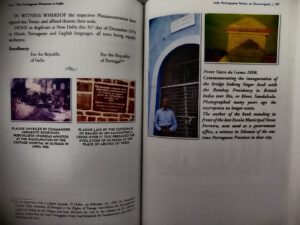
Finally, “The Referendum Rub” is the book’s pièce de resistance. Highlighting UN Charter’s principle of equal rights and self-determination of peoples, Menezes points to Chandernagore as the subcontinent’s only foreign settlement territory where a referendum was held to determine its political future. Although a referendum for Goa had votaries, “no such referendum was admissible or mandatory under the Estado Novo Constitution of Portugal” (p. 214). In Menezes’ opinion, even if it were permitted in Goa, “weighing the nuances, a referendum might have created more problems than it could solve” (p. 215). In hindsight, “Professor Aloysius Soares’ proposal of Portuguese autonomy [according] to a special constitution followed by a transfer to India with that constitution in place was a pragmatic approach to the future of the Portuguese territories…” (p. 219)
The Portuguese Presence in India, by João A. de Menezes, 90, who retired as chief mechanical engineer of Bombay Port Trust, is truly a labour of love, never mind the publisher’s price tag. A storehouse of memories and musings, blessed with period photographs and good get-up, the hardcover book printed on art paper could have done with better editing, bibliography and index. It is nonetheless a precious contribution to contemporary Indo-Portuguese history and a testament to the author’s love for Goa and insights into her soul.
(Published in Revista da Casa de Goa, Series II, No. 25, Nov-Dec 2023, pp 44-46)
Authentic and Zealous
The Temple of Jerusalem is an important reference point. The one built by Solomon was destroyed in 587 B.C. when the Babylonians torched the city and sent the Judean leaders into exile to Babylon. In 539 B.C. Cyrus, king of Persia, absorbed the Babylonian empire and permitted the Jews to rebuild the temple in their land. On reconstructing the temple in c. 515 B.C., the Jews enjoyed an era of peace but soon became apathetic as regards the divine cult.
Hence, in the First Reading (Mal 11, 22 – 12, 2), Prophet Malachi (the last in the traditional list of minor prophets) censures the people and more so the priests, who were leaders and interpreters of the Scriptures. His discourse begins with an accusation and ends with a sentence: “O priests, this command is for you. If you will not listen, if you will not lay it to heart to give glory to my name, says the Lord of Hosts, then I will send the curse upon you.”
No doubt, we could extend this to ourselves, for we all have the priestly vocation; but here Malachi addresses the sacramental priesthood in particular. His words make one stop in one’s tracks; hence, nothing more dare I say except hope and pray that we turn a new leaf.
Whereas Malachi observes that the priests have been teaching wrong doctrine and misguiding the people, in the Gospel (Mt 23: 1-12) Jesus states that the scribes and the Pharisees have been teaching the law but failing to practise it. They who sat on Moses’ seat – as teachers and leaders – had the moral duty to practise the law (“heavy burdens” or duties) that they imposed on their people. Jesus draws a long list of tricky situations involving those erring leaders and ends with a startling principle: “He who is greatest among you shall be your servant; whoever exalts himself will be humbled, and whoever humbles himself will be exalted.”
Meanwhile, what did Jesus mean by those intriguing words, “father” and “master”? Is there a ban on their use? Jesus only reminds us that none should usurp the authority that belongs to God, our Father, and Himself, our Divine Master.
St Paul in the Second Reading (1 Thes 2: 7-9, 13) states what it takes to be an apostle: self-sacrifice. However, we must realise that we should not exploit the apostle’s gentleness and mercy; on the contrary, the people ought to show authenticity, fairness, reciprocity, sincerity, gratitude.
Our human condition, fragile as it is, does not make life easy, nor does the Word of God easily sink into us and transform us. That is why what happened millennia ago repeats itself. On the other hand, we must not be discouraged but persevere in letting the Word bear fruit in us. Our reference point is no longer the physical Temple of Jerusalem; Jesus teaches us to live as living temples of God, authentic and zealous.
Konkani is not a dialect of Marathi - 2
Part 2 of "O concani não é dialecto do marata", by Mgr. Sebastião Rodolfo Dalgado, in Heraldo, Pangim, Goa, Year IX, No. 2570, 13 February 1917, p. 1)
II
‘Dialect’ is a rather vague and ambiguous word. It is taken in several senses, the two most common being: tenuous grammatical and vocabulary variants of the same language within its area, derivation, usually immediate, from one idiom to another.
Every living language is subject to changes, big or small, in time and in space. Only dead languages are immutable. The greater the vitality and the wider the area of a language, the more the changes of one kind or another that it undergoes.
The lack of homogeneity and cohesion of a people, the climactic and physiological differences, the diversity of the social environment, the proximity of other languages are other factors of modification. Some call that corruption or degeneration, while others more appropriately call it evolution or expansion.
Literature can stereotype a particular form of speech and limit its spontaneity; but it cannot totally prevent its development.
So, it is precisely these phonetic and morphological, and sometimes syntactic and lexicological, variations that constitute dialects in a linguistic space. Their differences in time are known as "phases".
The Portuguese language is regarded as uniform throughout the continental territory. This does not preclude dialectal peculiarities of varying importance in different provinces or districts. Such particularities have been the object of scientific study in modern times, by philologists of the calibre of Dr José Leite de Vasconcelos.
The Konkani language too (so disparaged for this reason) has similar province and class related varieties. Bardez speech is not identical to that of Salcete, nor is the speech of Sawantwadi the same as that of Kanara.
If such a flaw is of major significance, as some philologists there take it to be, other more cultured languages are not exempt from it. Italian has more than twenty dialects, remarkably differentiated; French, at least fifteen, and modern Greek, more than seventy.
But then again, it is evident that such dialects do not destroy the unity of the language. They are like petals of the same flower, like leaves of the same branch. And hence, those who speak different dialects follow each other without any difficulty, when they converse, and they easily understand common literature. The opposite is true of languages and their literatures.
Now, since Cunha Rivara it has been repeated that it is easier for a Portuguese to understand a Castilian than for a Goan to understand a Maratha, and vice-versa. And nonetheless, there are still enlightened spirits in Goa who are not convinced of this palpable truth nor do they wish to do a check for themselves, which is easy to access. They are content – I am not sure if for erudition or for convenience – to rely on the opinions of various authors, not all of them recommended for competence in the matter. Some are foreigners, who have learnt Konkani superficially; others have lived in times when glottology and dialectology made little progress. And they were all were fascinated to note the analogies, but failed to justify the discrepancies.
I can say from experience that I could more easily understand Italian by its likeness to Portuguese than I could colloquial Marathi by its similarity to Konkani. On my first trip to Europe, on an Italian steamer, an Englishman had me as his interpreter to communicate with the cabin boys on board.
And my observation matches. There is no need to pile up supporting facts.
In Portugal there are no schools teaching Castilian nor is Portuguese taught in Spain, as they consider it pointless. The Portuguese read Spanish literature as easily as the Spaniards read Portuguese literature. Among the not many books that a parish priest of Perném had, I saw one of sermons in Spanish, of which he had neither a grammar nor a dictionary. And it was not for show that he had the book.
It would indeed be interesting to know how many of the Christians who attended the Marathi school at our lyceum and graduated would be able to communicate easily in Marathi and translate books without undue aid of a dictionary. And how many of those who praise the vastness and the amenity of its literature are delighted to read it regularly?
All this is clear as daylight, and needs no further demonstration. In any other place this would suffice to establish in principle that Konkani is not a dialect of Marathi, in the sense of its slightly divergent form. But what would be incontestable truth to others, in Goa quite unsurprisingly finds astute opponents, who by hocus-pocus seek to prove that white is black.
It is not without reason that Tavernier wrote in 1676 (Voyages, 1712 edition, III, p. 159): "As for trials, they never come to an end; they are handled by the canarins, natives of the country who practice the professions of solicitors and procurators, and there are no people in the world more cunning and subtle."
Similarly, a very meticulous judge of the Supreme Court told me, not many months ago, that libels from India, besides being longwinded and confused, were not much commended for legal erudition but rather abounded in petty objections and twists to muddle up the truth and obfuscate the law. What the cradle bestows only the tomb takes away.
There are yet those who even grudge Konkani the status of a dialect, calling it simply a "corruption of Marathi". But what is not corrupt, in some sense or other? We ourselves have been corrupt since our first parents’ prevarication. Omnis caro corruperat viam suam, says the Scripture about the antediluvian people. And that we did not get any better after the catastrophe is indicated by events unfolding before our eyes.
If by corruption is meant deviation from the original type, Portuguese, French and Italian are corruptions of colloquial Latin, just as Latin, Greek and Gothic are corruptions of the Proto-Aryan. Gujarati, Hindi and Bengali are corruptions of Sanskrit, or, strictly speaking, of archaic Prakrit languages, just as Sanskrit and Iranian are corruptions of the Indo-European language, which in turn would be a corruption of some other idiom. Corruption of languages is coeval with, if not earlier to, the tower of Babel. However, what to laypersons in the matter appears to be corruption, to those who know is actually evolution.
Of course, Marathi is an exception, for apparently it is in a class apart among the languages of India and the world. A native philologist regarded her as a "beloved daughter of Sanskrit" as though he had witnessed her mother’s caresses; some other decrees her to be Goa’s “national” language, as though this territory were a nation or now under Bhosale rule. Another raises it to the status of a vernacular language – of “our language”, to the Goans! But by what name is Konkani known in the country’s speech? one may ask a child. Certainly not Konkanni bháx, for to the Christians konknnó means “gentile”, and konknni bháx would mean “language of the gentiles”.
And when the Hindu litigant says, ‘Aga Sinhor Dijembargador tó artig âmkam duvârún am’che bhâxent sáng ga’ – which language is he referring to?
Nor is there lack of those who think that Marathi, by its own resources, can express all abstract ideas – a phenomenon that no other living language of India or of Europe can boast of. And I, in my indigence, would give one hundred rupees as a prize to whoever showed me some ten pages of a book of science or of high literature written exclusively using Marathi words – dexajas.

